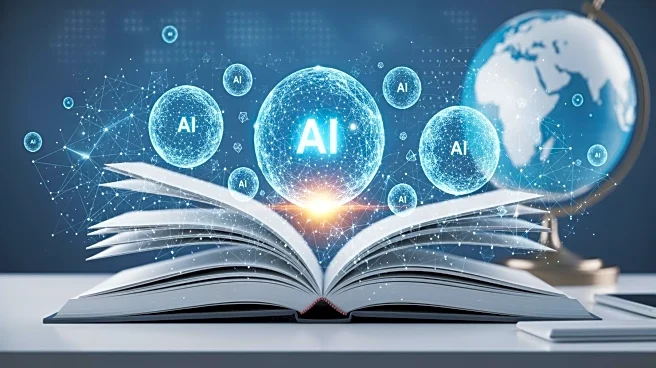What's Happening?
AI-powered translation services are rapidly growing, offering new opportunities for independent authors and small publishers to access international markets. Companies like GlobeScribe and Ailaysa are leading the charge, providing translations in multiple
languages at competitive prices. GlobeScribe, based in Cambridge, England, offers fiction translations for $100 per title, while Ailaysa, based in Chennai, India, charges $1 per thousand words. These services emphasize contextual translation and the importance of human editors to ensure quality. However, the use of AI in translation raises concerns about copyright protection, with differing regulations in the U.S. and U.K.
Why It's Important?
The expansion of AI translation services has the potential to significantly impact the publishing industry by opening up new markets and reducing translation costs. This could lead to increased accessibility of literature across different languages and cultures, benefiting both authors and readers. However, the legal implications of AI-generated translations, particularly regarding copyright protection, could pose challenges for U.S.-based publishers. As AI technology continues to advance, it is essential for stakeholders to navigate these complexities to maximize the benefits while addressing potential risks.















